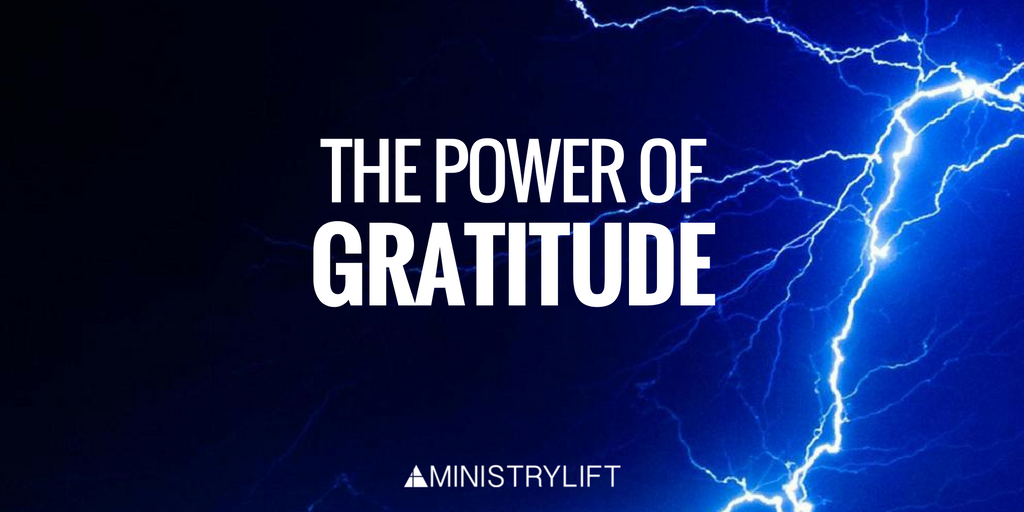The Power of Gratitude
 My six-year-old has a gratitude journal. I’d like to say I came up with the idea, but all the credit goes to his Grade 1 teacher. Writing in a gratitude journal is a regular part of my son’s school schedule. He doesn’t attend a private school; his teacher simply understands the power of giving thanks.
My six-year-old has a gratitude journal. I’d like to say I came up with the idea, but all the credit goes to his Grade 1 teacher. Writing in a gratitude journal is a regular part of my son’s school schedule. He doesn’t attend a private school; his teacher simply understands the power of giving thanks.
I don’t use the word “power” loosely. A life motivated by acts of gratitude looks decisively different than a life devoid of thanks. Consider these survey findings from a group of psychologists:
- 90% of people surveyed found that expressing gratitude made them more joyful
- 84% said it reduced stress and depression and increased optimism
- 78% said it gave them more energy*
These results are cited in a book called 10 Mindful Minutes that inspired my son’s teacher to make gratitude journaling a regular part of her curriculum (children require teaching to cultivate gratitude since most aren’t naturally thankful). This book is just one title from a growing segment of writers who proclaim the merits of saying “thank-you” (Ann Voskamp’s One Thousand Gifts is an excellent guide on how to embrace everyday blessings).
Many of us choose to make goals or resolutions throughout the year. These are steps we take to assess what’s wrong with our lives and to search for solutions that will hopefully increase our happiness. Resolutions are attempts to “re-solve” a matter with a new sense of commitment. Resolutions are honourable and effective when structured in the right way (here's a resource on how to develop a personal growth plan), but I’m not convinced that many goals will measure up to the value of giving thanks. A life that reflects daily gratitude is a life that is filled with joy, patience, and generosity.
Gratitude is not only good for the mind and body, it’s nourishment for the soul. Regardless of what science may tell us about the benefits of being grateful, we must remember that gratitude is always an act of obedience. Followers of Jesus are instructed to give thanks in all circumstances because it is God’s will for their lives (1 Thess 5:18). We give thanks because we live by grace alone. We give thanks because we know that every good gift comes from our Father. We give thanks because God can take any circumstance in life and use it for good.
How often do you dwell on what you’re thankful for? When was the last time you expressed your thankfulness for a friend in a way that clearly communicated your gratitude?
Voskamp’s book challenged my family to make a list of what we’re thankful for. We filled pages with entries big and small, tangible and intangible. This activity helped us track our gratitude, but it also trained our minds to look for moments to be grateful for. Seeing my son write in a gratitude journal is yet another reason to give thanks.
Keith Reed is the Associate Director of MinistryLift at MB Seminary.
>>> Looking for more resources on similar topics? MinistryLift members can access a training video led by Dr. Randy Wollf called "How to Develop Godly Character".
* Goldie Hawn, 10 Mindful Minutes: Giving Our Children—and Ourselves—the Social and Emotional Skills to Reduce Stress and Anxiety for Healthier, Happier Lives (New York: Penguin Group, 2011), 126.
